Owner’s Equity Definition, Formula, Examples & Calculations
Liabilities are obligations that a business owes to creditors or lenders, such as loans, accounts payable, or taxes owed. They represent the claims that others have on the assets of the business. John contributed $50,000 of his own money to start the business, and in exchange, he was issued 50,000 shares of common stock at $1 per share. An equity interest is an ownership interest in a business entity, from the concept of equity as ownership. Shareholders have equity interest as their purchase of shares of stock in the corporation gives them a share in the ownership of the business. Equity interest is in contrast to creditor interest from loans made by creditors to the business.
Example of Shareholder Equity
But don’t look to owner’s equity to give you a complete picture of your company’s market value. Owner’s equity is calculated by adding up all of the business assets and deducting all of its liabilities. Preferred stock may be more attractive to investors who are looking for a fixed income stream, but it carries less potential for capital appreciation than common stock. Understanding the components of owner’s https://aci-uk.com/acceptable-use-policy/ equity is important for evaluating the financial performance of a business, as well as for making strategic decisions related to growth, financing, and operations. Before calculating, ensure you have your company’s most recent balance sheet. Corporations are formed when a business has multiple equity ownership, but unlike partnerships, corporation owners are provided legal liability protection.
- The fundamental accounting equation is assets equalling the sum of liabilities and equity.
- For sole proprietorships, owner investments are generally referred to as capital contributed.
- The amount of equity one has in their residence represents how much of the home they own outright by subtracting from the mortgage debt owed.
- Equity plays a critical role in business valuation, affecting how investors and the market perceive the value of a company.
- The only difference between owner’s equity and shareholder’s equity is whether the business is tightly held (Owner’s) or widely held (Shareholder’s).
Business Ownership and Capital Accounts
Shareholder’s equity is another name for owner’s equity for companies that are organized as corporations since their owners are often referred to as shareholders. Owner’s equity is an umbrella term for the residual interest of business owners. Owner’s equity represents the investment of the owners plus retained earnings. Owner’s equity is the amount that belongs to the business owners as shown on the capital side of the balance sheet, and the examples include common stock, preferred stock, and retained earnings. Owner’s equity can become an afterthought, which is unfortunate because owner’s equity gives you some very valuable information about the health of your business.
What is Petty Cash?
The fundamental accounting equation is assets equalling the sum of liabilities and equity. This equation is the basis for the balance sheet, which summarizes a company’s financial position at a specific point in time. In all of the examples we’ve discussed in this article, the basis of calculating http://www.auto60rus.com/newsauto/ajiotaj_pered_zastoem.php that equity was rooted in this accounting equation. Return on equity (ROE) is a measure of financial performance calculated by dividing net income by shareholder equity. Because shareholder equity is equal to a company’s assets minus its debt, ROE could be considered the return on net assets.
It may also be known as shareholder’s equity or stockholder’s equity if the business is structured as an LLC or a corporation. Calculated by subtracting your liabilities from your assets, owner’s equity is what would be left over if you liquidated your business and paid off any debts. The withdrawals are considered capital gains, and the owner must pay capital gains tax depending on the amount withdrawn. Another way of lowering owner’s equity is by taking a loan to purchase an asset for the business, which is recorded as a liability on the balance sheet.
Ask a Financial Professional Any Question
- This equation tells you how much your company is worth after all debts are paid.
- Learn what owner’s equity is, how it affects you and your business, how to calculate it, as well as helpful examples.
- It provides important insights into a company’s ownership structure and financial position.
- For this reason, owner’s equity is only one piece of the puzzle when it comes to valuing a business.
The sole owner’s equity is a direct measure of the business’s net worth, reflecting the owner’s investment and the business’s profits and losses — a straightforward view of the business’s financial health. The amounts for liabilities and assets can be found within your equity accounts on a balance sheet—liabilities and owner’s equity are usually found on the right side, and assets are found on the https://literia.ru/nws/po-itogam-xvi-premii-retail-finance-awards-2022-pobeditelem-stal-mts-bank/ left side. Owner’s equity is important because it represents the value of the business to its owners or shareholders. It is a critical measure of the financial health of a business, as it indicates how much of the business’s assets the owners have, as opposed to creditors or lenders. Total assets include all of the resources that the business owns, such as cash, inventory, property, and equipment.
This is where you would find out how much your business owns, as well as how much it owes — known as assets and liabilities in financial terms. We can calculate owner’s equity by subtracting the total liabilities of a company from its total assets. Owner’s equity is tracked on the balance sheet and is a product of your assets minus your liabilities.
While it’s interesting to know how the book value of the business (and your share in it) has changed over the year, it doesn’t provide much insight for managing performance. The income statement and the balance sheet contain the main details needed to make strategic decisions and so most small business owners focus on those. The repayment of a business loan from a business bank account does not affect the owner’s equity because it reduces the total assets and total liabilities leaving the equity unchanged. Owner’s equity refers to the portion of a business that is the property of the business’ shareholders or owners.
Their equity is in the form of stock or shares, which represents their ownership in the company. Be sure to take advantage of QuickBooks Live and accounting software to help with your statement of owner’s equity and other bookkeeping tasks. Overall, while the terms “owner’s equity” and “shareholder equity” are often interchangeable, “shareholder equity” is more specific and is primarily the context of corporations. It shares a separate line item that shows the amount of money or assets by the owner or owners to the business in exchange for ownership interests such as shares or equity. It is the portion of the business’s profits that are not distributed to shareholders as dividends but are kept within the company to be reinvested in the business. Each owner of a business has a separate account called a « capital account » showing his or her ownership in the business.
At the end of the year, due to currency fluctuations, the value of these investments increased by $2,000. This gain is present there as OCI and added to the accumulated other comprehensive income account. At the end of the first year, ABC Enterprises had a net profit of $20,000. Instead of distributing the entire profit as dividends, John decides to reinvest $10,000 in the business to fund expansion plans. In terms of the balance sheet values, we’ll start with retained earnings.
Due to the cost principle (and other accounting principles) the amount of owner’s equity should not be considered to be the fair market value of the business. Owner’s equity is viewed as a residual claim on the business assets because liabilities have a higher claim. Owner’s equity can also be viewed (along with liabilities) as a source of the business assets. Shareholders’ equity is, therefore, essentially the net worth of a corporation. If the company were to liquidate, shareholders’ equity is the amount of money that would theoretically be received by its shareholders. Home equity is roughly comparable to the value contained in homeownership.

